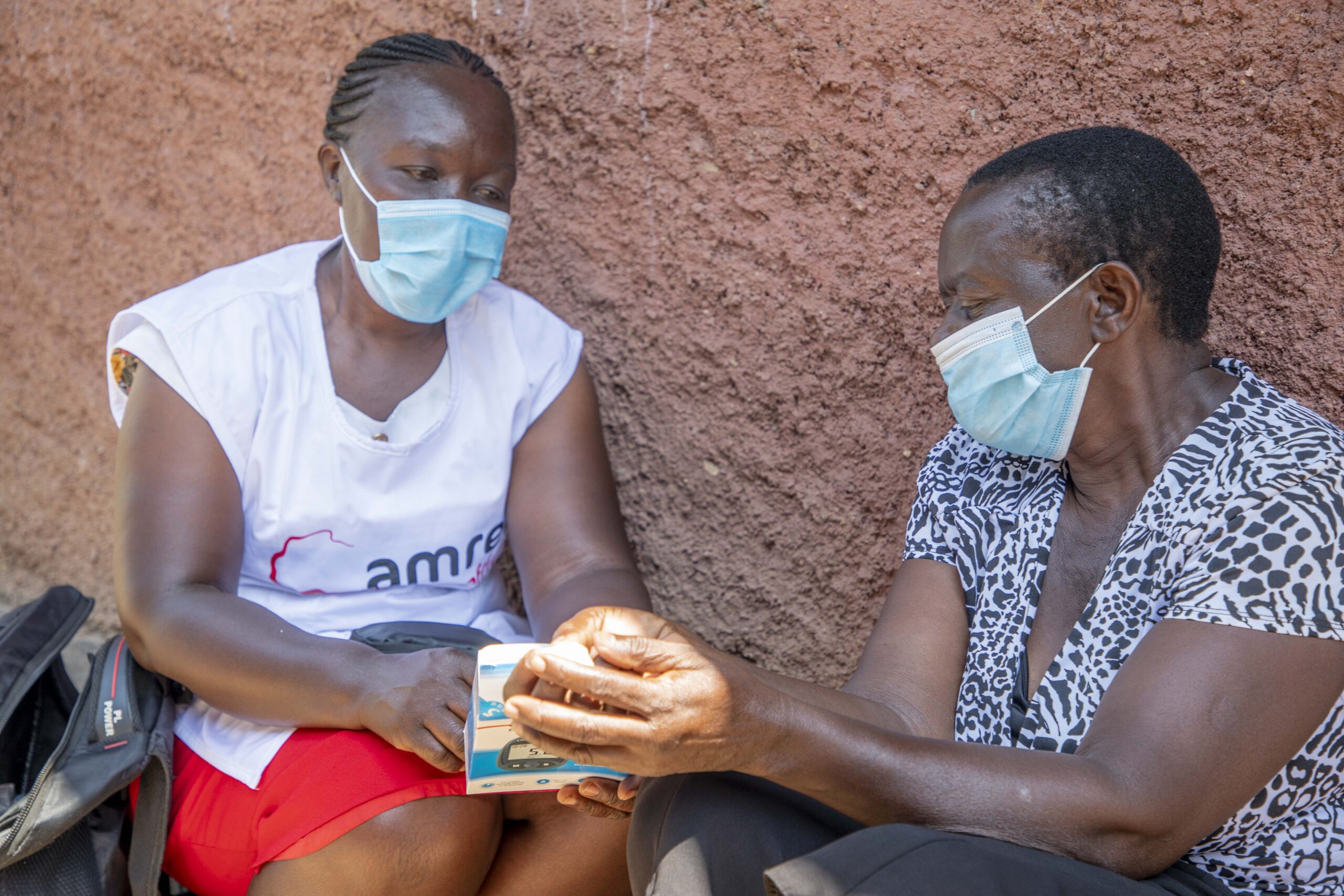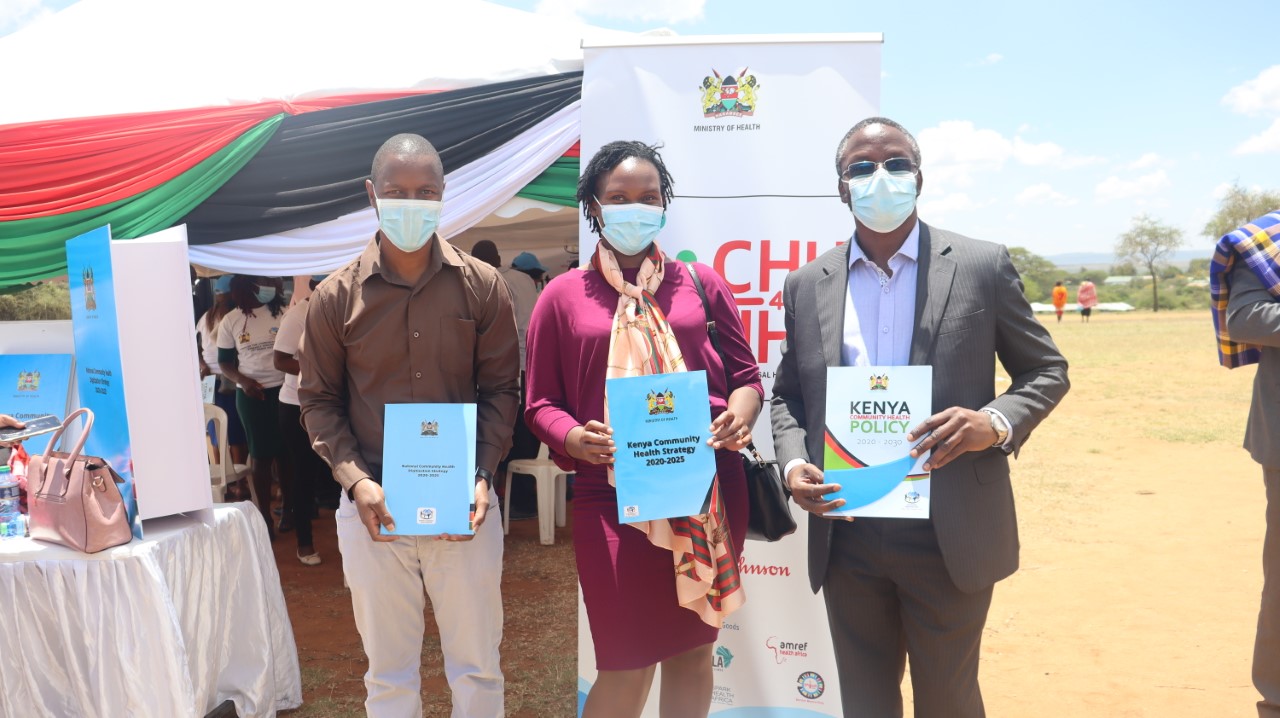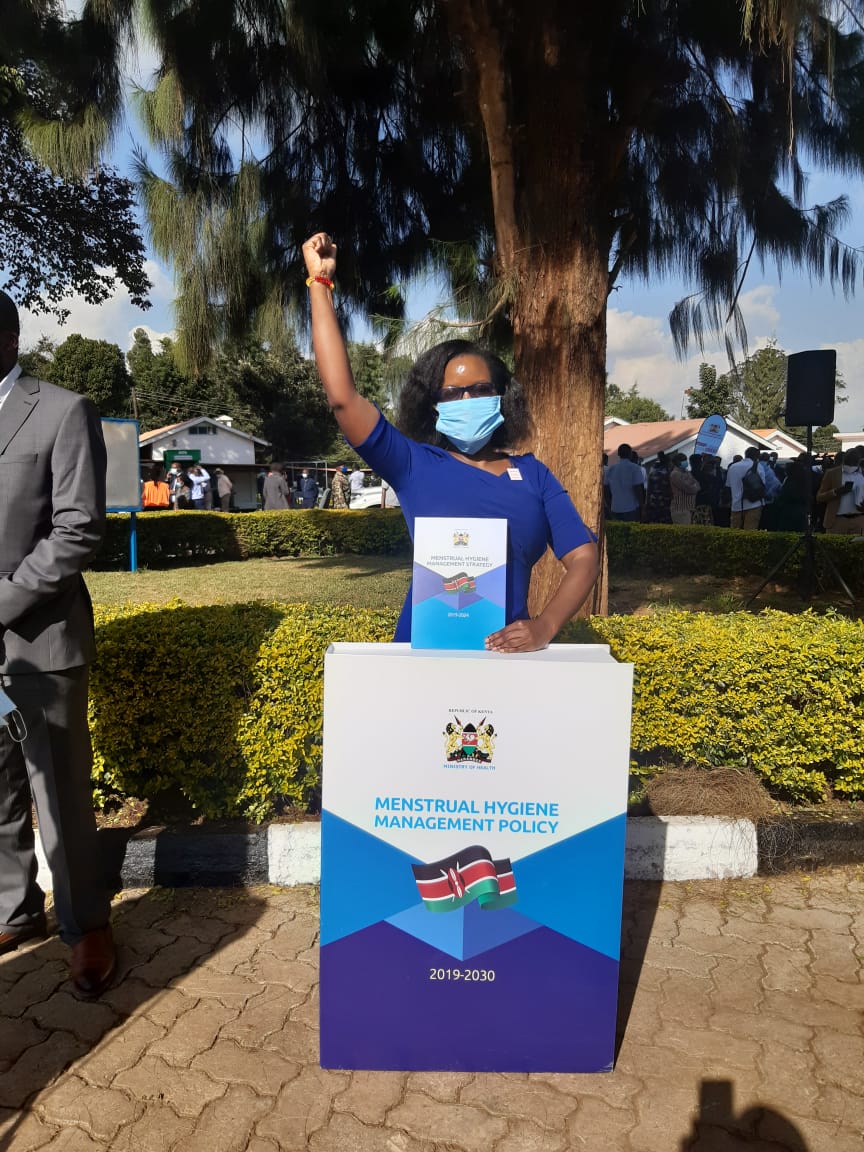Artisan Championing the Construction of Toilets in His Community – Bernard’s Story
Wednesday, 30 January, 2019

When Bernard Autai Alemu a father of three and a resident of Teso South in Busia County left school, his passion was to venture into business. His community selected him to be a Community Health Volunteer (CHV) and he could not turn down the role. Bernard took up the role; little did he know this path would lead him into his dream job.
In the many years of serving his community, Bernard was a recipient of several training courses supported by different partners, among them the Amref Health Africa in Kenya FINISH–INK project. The training sparked his passion; he saw a business opportunity, and his dream was realised.
Bernard is one of 310 artisans/masons trained by the FINISH- INK project on construction of various FINISH latrine models; ventilated improved pit latrines (single pit and double pit systems), toilets linked to septic tanks and those linked to leach pits. The artisans are also trained on business management including record keeping skills and development of business plans for financing.
His determination and commitment in construction is inspiring. Bernard and other artisans visit homesteads and encourage them to adopt the FINISH latrines, detailing the cost of construction using interlocking bricks popularly known as ‘makiga.’ Once an agreement is reached with the client, Bernard brings the construction materials to the site, and the pit diggers start digging.
Bernard ensures that there is a market demand for toilets and access to capital for families to invest in them. He also makes the community understand why they should have a toilet in their homes.
“We work closely with community health volunteers and financial institutions that offer affordable loans. Despite the fact that we also market our work and the latrine model, the CHVs also link us with the households they have convinced to build the FINISH latrines,” says 31-year-old Bernard who took on his role with enthusiasm.
Always cheerful and energetic, Bernard never tires. “I love my job. The fulfilment I get after completing a toilet is unexplainable. I am happy to earn a good salary and also empower other youth and offer them employment.”
He is always happy because his duty does not end with the construction of toilets. As a former CHV, he still gets to educate families on the proper use of latrines and advise them on the use of a leaky tin for handwashing.
“Not only are my clients happy with the way the toilets have been built using the makiga interlocking bricks, but they are also beginning to prefer the FINISH latrine model, ”he says.
 Bernard also makes the makiga interlocking bricks using a manually operated machine and locally available materials which he sells at affordable prices to the local community.
Bernard also makes the makiga interlocking bricks using a manually operated machine and locally available materials which he sells at affordable prices to the local community.
He has inspired many unemployed youth to follow his footsteps. Bernard has employed 16 youth and also teaches other interested artisans on how to construct the FINISH toilet. This has improved their livelihoods through job creation. His main goal is to share his knowledge and skills with other people so that they can have their own income.
“I have taught many youth about basic latrine construction, making of makiga bricks, getting the right dimensions for the pit, and costing of materials needed for construction,” he explains.
The projects’ advocacy efforts have yielded co-investment with the county and the national Government through Constituency Development Fund (CDF) of over US$250,000 to improve sanitation facilities across the County.
To date, the Financial Inclusion Improves Sanitation and Health in Kenya (FINISH-INK) project has supported the construction of 17,412 basic latrines and improved 6,731 sanitation facilities. The project which is funded by the Dutch Government through the Netherlands Enterprise Agency (RVO) has strengthened the capacity of youth, local government authorities, women groups and community health volunteers, enhancing the livelihoods of 518 entrepreneurs in Busia County. The project has so far improved 29,759 sanitation facilities and 148,600 households reached with sanitation messages, this has contributed to the reduction of diarrheal diseases by 12 % among children under the age of five.
Amref Health Africa teams up with African communities to create lasting health change.




